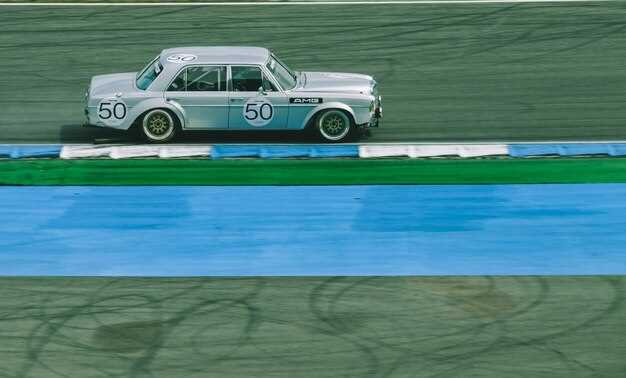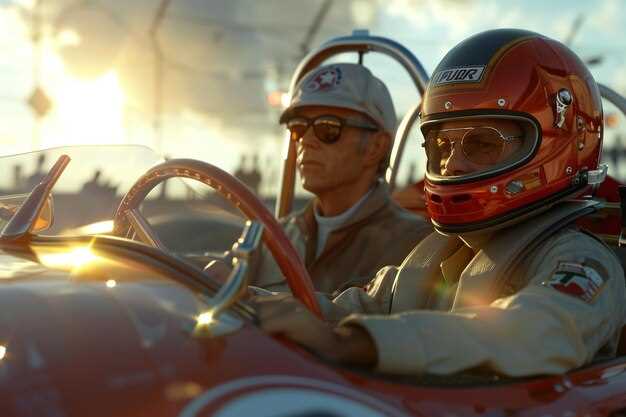How VW Racing Evolved Over the Decades

The evolution of Volkswagen (VW) in the world of motorsport is a fascinating journey that spans several decades. From its humble beginnings in the post-war era to becoming a prominent figure in global racing, VW has left an indelible mark on the motorsport landscape. This evolution showcases the brand’s commitment to innovation, performance, and engineering excellence.
In the early years, VW’s racing endeavors were characterized by grassroots competitions and the iconic Beetle, which became a symbol of reliability and efficiency. As the decades progressed, advancements in technology and changing race formats prompted VW to adapt its strategies and vehicles. This adaptability has allowed VW to remain competitive while continually pushing the boundaries of performance in various racing disciplines.
Throughout the years, VW has achieved significant milestones, from dominating rally racing in the 1980s with the Golf GTI to making waves in modern electric motorsport. Each phase of VW’s racing evolution reflects broader trends in motorsport, as well as the brand’s own vision for the future of racing. This article will explore the pivotal moments and innovations that have shaped VW’s racing legacy, illustrating how the brand has harnessed the spirit of competition to drive its evolution in motorsport.
Impact of the Beetle on Early Racing Culture
The Volkswagen Beetle, introduced in the late 1930s, had a significant influence on early motorsport culture. Its unique design and engineering made it an accessible vehicle for racing enthusiasts. The Beetle’s rear-engine layout provided a low center of gravity, contributing to improved handling characteristics on various racing tracks.
In the 1950s and 1960s, the Beetle became a symbol of grassroots racing, with many amateur racers modifying their vehicles for competition. This era marked the beginning of organized racing events where Beetles competed against each other, often in local rallies and hill climbs. The car’s reliability and simplicity allowed many racers to participate without needing vast resources, fostering a sense of community among participants.
The evolution of the Beetle in motorsport also led to the creation of various racing categories. Events like the “Beetle Cup” attracted both fans and participants, showcasing the car’s versatility. As the Beetle proved its mettle on the track, it also inspired manufacturers to recognize the potential of small, compact cars in racing.
Furthermore, the success of the Beetle in motorsport encouraged Volkswagen to invest in racing endeavors. This commitment not only solidified the car’s legacy but also helped shape the future of VW’s racing programs. The Beetle’s popularity in motorsport laid the groundwork for the brand’s evolution in competitive racing, influencing later models to adapt and excel in various motorsport events.
Technological Advancements in VW Motorsport Tuning

The evolution of VW motorsport tuning has been significantly influenced by technological advancements that have transformed performance and efficiency. From the early days of air-cooled engines to the latest turbocharged models, VW has continuously adapted to the changing landscape of motorsport.
One of the most notable advancements is the development of ECU tuning. Modern VW vehicles are equipped with sophisticated Engine Control Units that manage engine performance. Tuning these ECUs allows for precise adjustments to fuel maps, ignition timing, and boost control, resulting in enhanced throttle response and power output.
Another critical area of technological advancement is the improvement in aerodynamics. Wind tunnel testing and computational fluid dynamics (CFD) have enabled VW engineers to design body kits that reduce drag and increase downforce. These enhancements contribute to better handling and stability during high-speed racing.
The integration of lightweight materials has also played a significant role in VW motorsport tuning. The use of carbon fiber, aluminum, and other advanced composites reduces the overall weight of the vehicles. This reduction in weight not only improves acceleration and braking but also enhances fuel efficiency during endurance races.
Furthermore, advancements in suspension technologies, such as adaptive damping systems and advanced shock absorbers, provide better handling and comfort on varying track surfaces. These systems can dynamically adjust to road conditions and driving style, improving overall vehicle performance.
The rise of telemetry in VW motorsport has also transformed how teams analyze data. Real-time data collection allows engineers and drivers to monitor performance parameters, making informed decisions about tuning adjustments and race strategies. This data-driven approach fosters continuous improvement and competitive edge on the racetrack.
In summary, technological advancements in VW motorsport tuning have significantly enhanced performance, safety, and efficiency. By leveraging cutting-edge technologies, VW continues to push the boundaries of motorsport excellence, setting the stage for future innovations in racing.
Iconic VW Models and Their Racing Achievements

The evolution of VW in the motorsport arena is marked by several iconic models that have left an indelible mark on racing history. Among these, the Volkswagen Beetle stands out, primarily for its remarkable performance in rally events. Its rear-engine layout and lightweight design contributed to its success, capturing numerous wins in the European Rally Championship throughout the 1960s.
In the 1970s, the introduction of the Volkswagen Golf GTI represented a significant shift in the brand’s approach to motorsport. The Golf GTI combined practicality with performance, quickly becoming a favorite in rally stages and track racing. Its racing versions, including the Golf GTI Pirelli Edition, showcased its adaptability and competitiveness, earning numerous accolades in various championships.
As the 1980s rolled in, the Volkswagen Scirocco made its mark in touring car racing, particularly in the Group A category. This model’s aerodynamic design and turbocharged engine provided a potent combination that dominated several races, proving VW’s commitment to innovation and performance in motorsport.
Moving into the 1990s, VW ventured further into rallying with the Volkswagen Polo, which emerged as a dominant force in the World Rally Championship. The Polo’s integration of advanced technology and lightweight materials played a crucial role in its multiple championship successes, showcasing VW’s ongoing evolution in motorsport.
In more recent years, the Volkswagen ID.R has redefined electric racing. This fully electric vehicle not only shattered records at the Pikes Peak International Hill Climb but also demonstrated VW’s innovative spirit in the new era of motorsport. With its advanced electric powertrain and aerodynamic design, the ID.R marks a pivotal moment in VW’s racing evolution, highlighting the brand’s commitment to sustainability without compromising on performance.
These models exemplify VW’s journey through the decades in the motorsport world, showcasing a blend of innovation, performance, and a relentless pursuit of victory.



